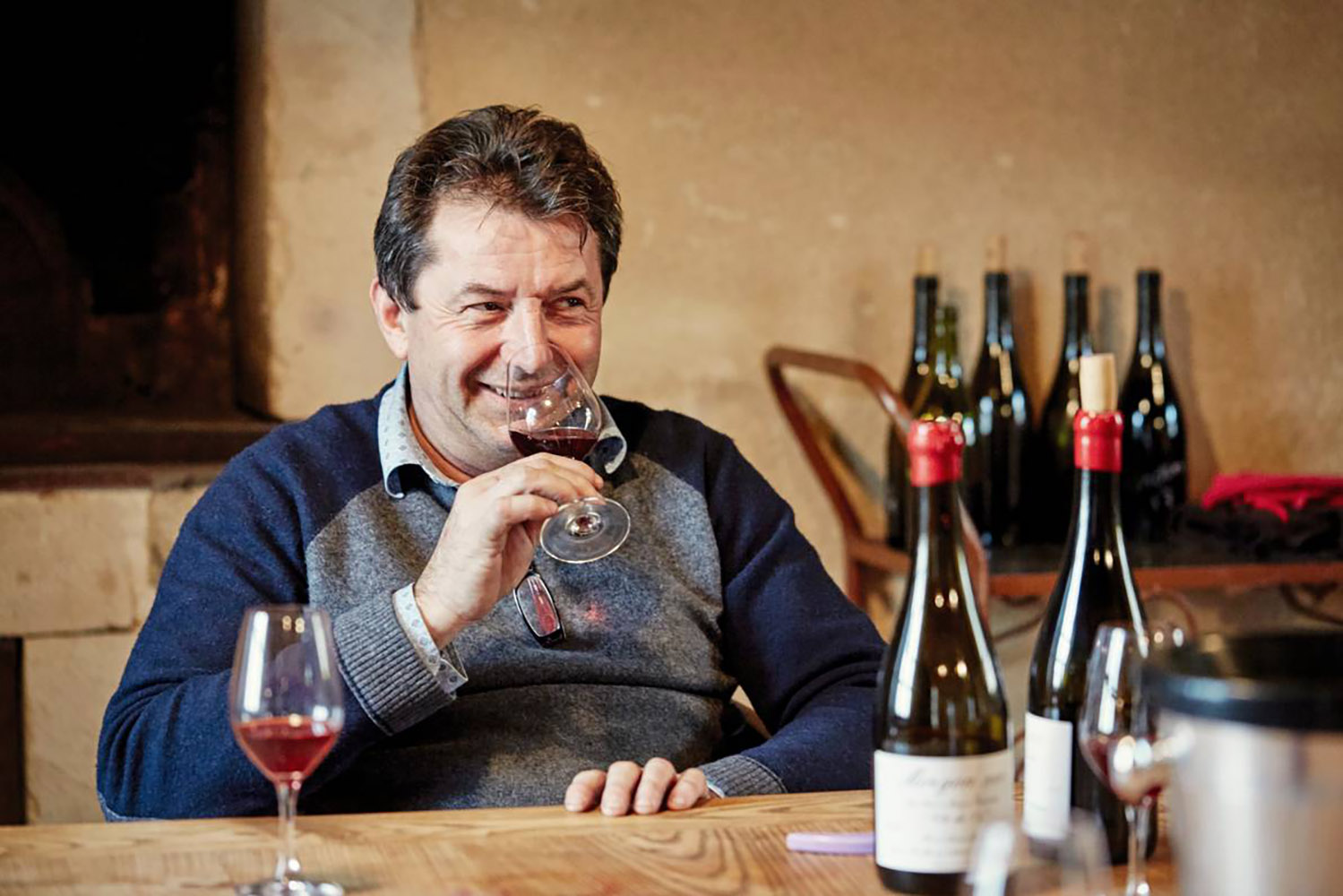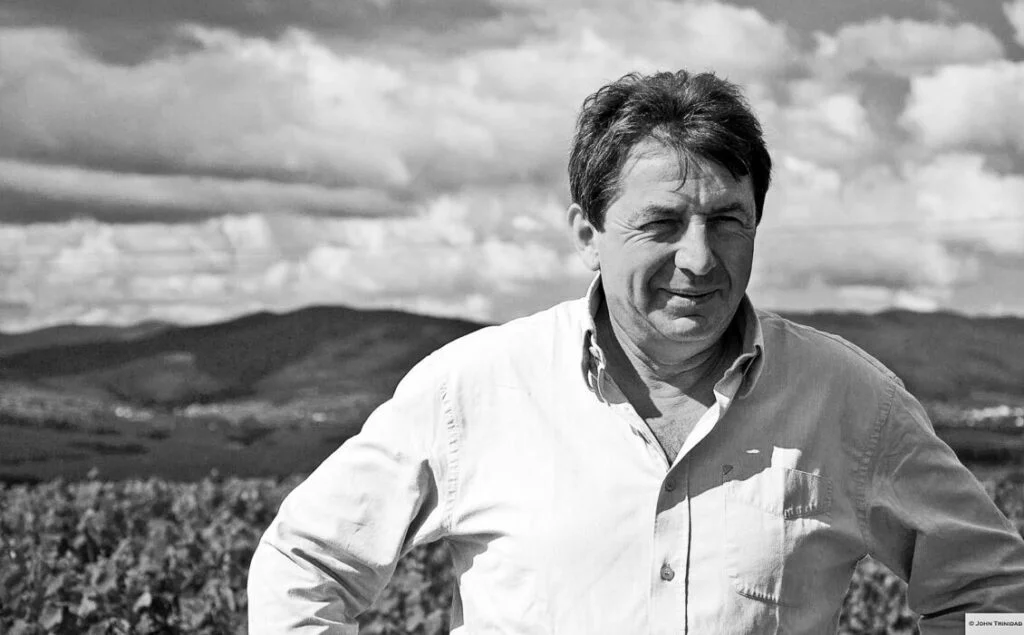March 7, 2024
The Terroir of Beaujolais: How the Land Shapes Jean Foillard's Wines

Jean Foillard, a renowned winemaker in Beaujolais, is celebrated for his meticulous approach to viticulture and winemaking, producing wines that reflect the true essence of their terroir. The unique characteristics of Beaujolais’ terroir significantly influence the profile of Foillard’s wines, creating exceptional expressions of the region's Gamay grape. This article delves into the elements of Beaujolais’ terroir and explores how they shape the distinctive qualities of Jean Foillard’s wines.
The Terroir of Beaujolais
Geographic Location and Topography
Beaujolais is located in eastern France, nestled between the Saône River and the foothills of the Massif Central. The region's vineyards span a series of rolling hills, with altitudes ranging from 200 to 500 meters above sea level. This varied topography provides diverse microclimates that are ideal for viticulture, particularly for the Gamay grape, which thrives in these conditions. The elevation and slope orientation contribute to optimal sun exposure and drainage, crucial for the healthy growth and ripening of the grapes.

Soil Composition
The soils of Beaujolais are diverse, with a mix of granite, schist, and clay, each contributing unique characteristics to the wines. The region is divided into three main soil types that play a significant role in the quality and style of the wines produced:
-
Granite Soils: Predominantly found in the northern part of Beaujolais, particularly in the crus such as Morgon, Fleurie, and Moulin-à-Vent. These soils are well-draining and rich in minerals, which enhance the concentration and complexity of the wines. The granite soils impart a distinct minerality and structure, often resulting in wines with a firm tannic backbone and great ageing potential.
-
Schist Soils: Present in areas like Côte de Brouilly, these soils also contribute to the minerality and acidity of the wines. The schist adds a unique, flinty character to the wines, providing a refreshing edge and vibrant acidity that balances the fruitiness of the Gamay grape.
-
Clay and Limestone Soils: More common in the southern part of Beaujolais, these soils are typically used for producing the lighter, fruitier Beaujolais Nouveau. However, in the hands of skilled winemakers like Jean Foillard, even wines from these soils can exhibit remarkable depth and complexity.
Climate
The climate of Beaujolais is semi-continental, characterized by warm summers and cold winters, with moderate rainfall throughout the year. The region benefits from the moderating influence of the Saône River, which helps to temper extreme temperatures. The combination of ample sunshine and cool nights during the growing season allows the grapes to ripen slowly and evenly, preserving their acidity while developing rich, concentrated flavors. This climate is particularly well-suited to the Gamay grape, which thrives in these conditions and produces wines with bright fruitiness, balanced acidity, and delicate floral aromas.

Photo: Jean Foillard
How Terroir Influences Jean Foillard’s Wines
Jean Foillard is renowned for his dedication to expressing the unique terroir of Beaujolais in his wines. He practices sustainable viticulture, avoiding synthetic chemicals and embracing traditional methods to maintain the health and vitality of his vineyards. This respect for the land ensures that the wines reflect the true character of their origin.
Aromatic Complexity and Flavour
The granite soils of Morgon, where Foillard's vineyards are primarily located, contribute significantly to the aromatic complexity and flavor profile of his wines. The wines from these vineyards exhibit intense aromas of red and black fruits, such as cherry, raspberry, and blackberry, complemented by earthy notes and a distinct minerality. The granite soils also impart a firm tannic structure, which adds depth and longevity to the wines, allowing them to age gracefully and develop additional layers of complexity over time.
Structure and Balance
The well-draining granite soils, combined with the region’s climate, ensure that the grapes maintain their natural acidity, which is essential for the balance and freshness of the wines. Foillard's wines are known for their vibrant acidity, which enhances the fruit flavors and provides a refreshing counterpoint to the wine’s richness. This balance is a hallmark of Foillard’s winemaking style, resulting in wines that are both elegant and powerful, with a harmonious interplay of fruit, acidity, and minerality.
Minimal Intervention Winemaking
Jean Foillard is a proponent of minimal intervention winemaking, a philosophy that aligns closely with his commitment to terroir. He employs natural winemaking techniques, including spontaneous fermentation with indigenous yeasts, minimal use of sulfur, and gentle handling of the grapes. These practices allow the true character of the terroir to shine through in the wines, free from the influence of excessive manipulation or additives.
